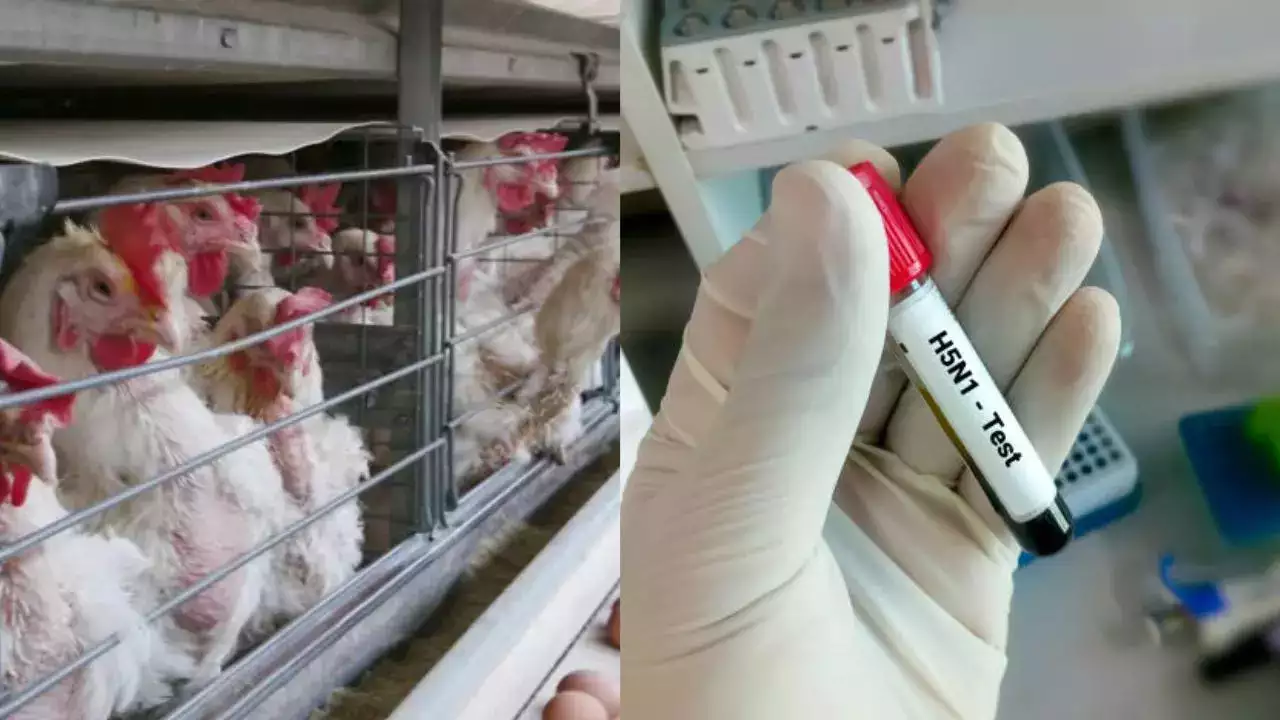
Bird Flu Hits Georgia’s Poultry Industry: First Commercial Flock Outbreak Confirmed! (Image Credits: iStock)
For the first time, Highly Pathogenic Avian Influenza (HPAI), commonly known as bird flu, has been identified in a commercial poultry flock in Georgia. The Georgia Department of Agriculture (GDA) and the U.S. Department of Agriculture’s Animal and Plant Health Inspection Service confirmed the H5N1 strain in Elbert County.
This marks the fifth time the virus has been detected in Georgia since the current outbreak began in 2022. However, it is the first case involving a commercial poultry operation, intensifying concerns for Georgia's poultry industry, the state’s largest agricultural sector.
Just a week earlier, state officials had reported the virus in a backyard flock of 13 chickens and ducks in Clayton County. The spread of the disease to a commercial setting highlights its growing threat.
“This is a serious threat to Georgia's number one industry and the livelihoods of thousands of Georgians who make their living in our state's poultry industry,” said Georgia Agriculture Commissioner Tyler Harper. “We are working around the clock to mitigate any further spread of the disease and ensure that normal poultry activities in Georgia can resume as quickly as possible.”
In response to the outbreak, the GDA has suspended all poultry exhibits, shows, swaps, meets, and sales in the state until further notice to curb the spread of the virus.
Symptoms of Bird Flu in Poultry
Bird flu is a highly contagious virus that affects birds and, in rare cases, humans. Symptoms in poultry include:
- Sudden and unexplained death in birds
- Respiratory distress, such as coughing or sneezing
- Swollen head, eyelids, and comb
- Reduced egg production
- Lethargy or difficulty walking
- Discolouration of wattles and legs
Poultry farmers are advised to monitor their flocks closely for these symptoms and report any unusual bird deaths to local agricultural authorities immediately.
Preventive Measures for Poultry OwnersTo prevent the spread of HPAI, poultry owners are encouraged to adopt stringent biosecurity practices:
1. Limit Contact with Wild Birds: Keep domestic poultry away from wild birds and waterfowl, which are natural carriers of the virus.
2. Clean and Disinfect Equipment: Regularly clean and disinfect equipment, shoes, and clothing used around poultry.
3. Restrict Visitor Access: Minimize access to poultry farms and ensure that visitors follow hygiene protocols.
4. Report Sick Birds: Notify local agricultural agencies if you observe signs of illness or unusual deaths in your flock.
Georgia is the largest producer of broiler chickens in the United States, making any disruption in poultry operations economically significant.
The GDA continues to work closely with federal and local agencies to contain the outbreak and protect the health of commercial and backyard poultry across the state. Residents and poultry owners are urged to remain vigilant and adhere to biosecurity guidelines to prevent further spread of the disease.
While there is no immediate risk to human health from the H5N1 strain, authorities recommend proper cooking of poultry and eggs to eliminate any potential hazards.
Get Latest News Live on Times Now along with Breaking News and Top Headlines from Health and around the world.
